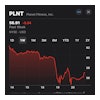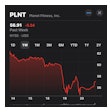You need to distinguish between employees who fit into your fitness center, and those who are more trouble than they are worth.
The reason that some employees who excel in their work seem like "weirdos" or "freaks" to their co-workers or, even worse, their bosses, is because they're often not terribly concerned about what other people think of them. And, not every nonconformist is an undiscovered genius. Sometimes a crackpot is just a crackpot. But writing off weird employees is a mistake. You need to distinguish between employees who fit into your fitness center, and those who are more trouble than they are worth.
Create a high-performance environment
Your first challenge as a manager is to create a high-performance environment for genuine high performers, eccentric as they may be, and to show the door to those who are, in fact, simply weird and annoying, suggests John Putzier in his book, Weirdos in the Workplace. It's not as hard as you may think. As the author explains, if you design your workplace around the common needs and values of high performance, "your culture will not only recognize and reward performance over just plain weirdness, but will also learn to accept a certain amount of weirdness as a natural byproduct of genius and/or high performance." Putzier identifies five needs of high-performance workers in what he dubbed our current age, the Age of the Individual. Individualism. High-performance individuals know what their strengths are, and they aren't very interested in whether others recognize them or not. They are unimpressed with authority, status symbols and the style-over-substance behaviors some employees use to get ahead. If you expect them to play by those rules, you will be disappointed. Independence. High-performers can be difficult to manage, for obvious reasons. They are self-monitoring and goal-oriented. Since they have little tolerance for bureaucracy and red tape, they must be trusted to accomplish tasks on their own. If you think they are difficult to manage now, try micro-managing and watch them walk out the door. Information. "Trust is the enemy of bureaucracy, but communication is its greatest ally," writes Putzier. High-performers expect management to be straight with them, and they want their information from the source. They also want it to be a two-way street. They expect to be able to tell management what they think without fear of punishment. Incentives. While most companies pay lip service to "pay for performance," many high performers consider it a scam. Consider the typical scenario in which the difference between a mediocre performer's raise and an outstanding one's is a meager 1 or 2 percent. Why not 10 percent? If pay does not reflect work, then high-performers will resent the average employees. And, who knows? Maybe genuine pay for performance will turn some of the mediocre performers into stars. Innovation. High performers embrace change. They aren't afraid to rock the boat. In fact, since they view conflict as an opportunity, they may be the initiators of change, especially when they see what they consider a problem. While your initial response to these episodes may be to think of them as troublemakers or complainers, instead, ask them how they would solve the problem.Rejoice in "why be normal?"
Learning to appreciate and even embrace the strengths of quirky, but talented, staff members gives you an important edge. You won't be limited to a pool of employees who conform to a narrow range of appearance or behavior. Instead, you can choose from a veritable universe of people, and gain the benefit of availing yourself of the rich assortment of personalities and skills that lie beneath the superficial. Your employees will thrive in an environment that makes them feel appreciated for who they are and what they can do, not how they look. The high performers will do even better, the mediocre ones may become excellent and the genuine weirdos will have nowhere to hide.References Putzier, J. Weirdos in the Workplace: The New Normal... Thriving in the Age of the Individual. Financial Times/Prentice Hall: Upper Saddle N.J., 2004. Wharton, D. Leaving no doubts, Los Angeles Times, Calif., Feb. 18, 2006.
Read Next
New Product Roundup: Fitness | Outdoor Surfaces
April 17, 2024
































